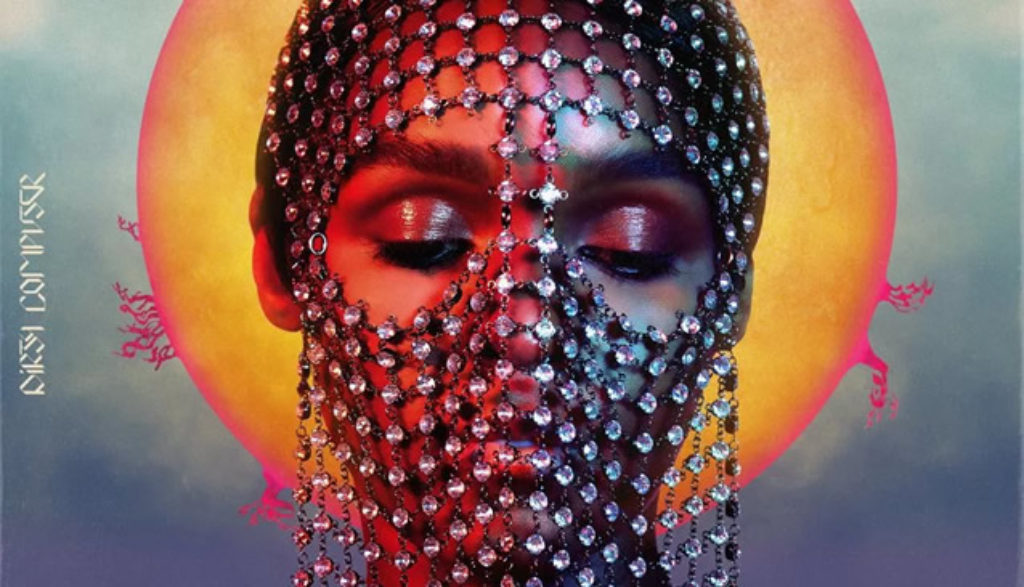
Janelle Monáe is accustomed to hard work and paving her own way. As a young child growing up in Kansas City, she watched her mother labor as a janitor and witnessed her father’s drug addiction, a habit that often landed him in jail. But those difficult life circumstances did not deter her: Monáe pushed forward from her humble blue collar roots, working to pave her own way in the world of R&B.
After years of self-promotion at local colleges and venues, Monáe was spotted by Big Boi, a member of the group Outkast, who featured her soulful sound on two of his tracks. Then she was signed with Sean “Diddy” Combs’ Bad Boy Records, the next step in what has now become a multifaceted entertainment career.
Monáe landed a role as Mary Jackson in the movie Hidden Figures. She’s made three EPs as well as two full-length albums. Dirty Computer is her third. In an interview with ESME, Monáe said of her approach to her art, “I always did both [music and acting], and I consider myself not just an actor or a musician or singer, but an artist-storyteller, and my hope is to continue to tell untold, unique universal stories in unforgettable ways.”
Dirty Computer showcases Monáe’s undeniable R&B artistry as it focuses on subjects as diverse as politics, religion, race, ethnicity, equality and a wide range of sexual preferences. It declares that we can be whoever (and whatever) we choose to be—a message of empowerment that’s positive in some ways and problematic in others.
Monáe encourages people to be themselves in songs such as “I Like That” and “I Got the Juice.” In the latter, we hear, “You know you got that juice/Ain’t no one fresher than you.” “I Like That” (profanely) recalls a time when she was bullied but still clung to belief in herself: “Uh, I remember when you laughed when I cut my perm off/And you rated me a six/ … But even back then with the tears in my eyes/I always knew I was the s—.” Elsewhere in that track, we hear how she’s quite comfortable not quite fitting in: “I’m the random minor note you hear in major songs/ … I don’t care what I look like but I feel good.”
Meanwhile, the song “So Afraid” honestly discusses Monáe’s fear of loving someone and being vulnerable: “And I’m afraid/Ah, I’m so afraid/Ah, what if I lose?/Is what I think to myself/I’m finding my shell/I’m afraid of it all, afraid of loving you.”
Monáe has a lot to say about the injustice of inequality. In songs such as “Screwed,” “I Got the Juice,” “Django Jane,” “Americans” and “Crazy, Classic, Life” she defends the rights of women who have been oppressed, confronts the gap in pay between men and women, addresses negative stereotypes and speaks out against racial inequality. In “Americans,” she sings, “Until women can get equal pay for equal work/This is not my America.”
“PYNK” and “Dirty Computer” both address the importance of remembering that we’re all the same, despite our many differences. In “Dirty Computer,” Monáe confesses her personal brokenness (“If you look closer you’ll recognize/I’m not that special/I’m broke inside”) and offers a prayer of sorts to God (“Text message, God up in the sky/Oh, if you love me, won’t you please reply?”). Another spiritual moment turns up on “Stevie’s Dream.” Guest Stevie Wonder contributes a spoken-word monologue about God that gets some things right (“God is love”); but unfortunately …
… it also veers in a universalistic direction by seemingly suggesting that all religions worship the same deity (“Allah is love/Jehovah is love”). And in “Crazy, Classic, Life,” we hear, “I just wanna find a God/And I hope she loves me too.”
Several songs explore Monáe’s sexuality and her desire to break the rules, including “Don’t Judge Me,” “Make Me Feel,” “Crazy, Classic, Life” and “Take A Byte.” In “Make Me Feel,” she shares how someone makes her feel “like I’m powerful with a little bit of tender/An emotional, sexual bender.” And in “Don’t Judge Me,” she says, “The water’s perfectly good/Let’s reintroduce ourselves/From a free point of view/If I’m gon’ sin, it’s with you/Tattoo your love on my heart/Let the rumors be true.” (This lyric is likely a nod toward rumors that Monáe and actress Tessa Thompson are currently an item).
In “Screwed,” Monáe frames fixing the world’s problems in profanely sexual terms: “And I, I, I hear the sirens calling/And the bombs are falling in the streets/… Let’s get screwed.” (The lines that follow involve the f-word in a sexual context.) And in “PYNK,” she crudely uses the color pink to reference sex and a woman’s anatomy. Several songs also promote androgyny and same-sex attraction. In “Americans,” for instance, we hear, “Uncle Sam kissed a man.”
Monáe’s well-intentioned promotion of equal rights for women nevertheless gets expressed in profane and angry ways at times, with that anger often directed at men. Elsewhere, as in “Django Jane” for instance, lyric are just plain crude. (We hear multiple vulgar references to the female anatomy in that track.)
Janelle Monáe’s latest effort is a complicated, compelling case study in contradictions.
Monáe often sings about her desire to unite, to bring peace and love where there is chaos and hate. She recognizes the importance of loving everyone, no matter their political viewpoint, race, religion, ethnicity or sexual orientation. It’s a timely message in a country that is deeply divided on many of these issues.
That said, love cannot be separated from truth. And too frequently on this album, Monáe does exactly that. Certainly, we need to love others and ourselves as God created us—because God loves us. But in Janelle Monáe’s (often vulgarly articulated) worldview, embracing a life of love often involves embracing pansexuality, androgyny, hedonism and universalism, too.

Kristin Smith joined the Plugged In team in 2017. Formerly a Spanish and English teacher, Kristin loves reading literature and eating authentic Mexican tacos. She and her husband, Eddy, love raising their children Judah and Selah. Kristin also has a deep affection for coffee, music, her dog (Cali) and cat (Aslan).